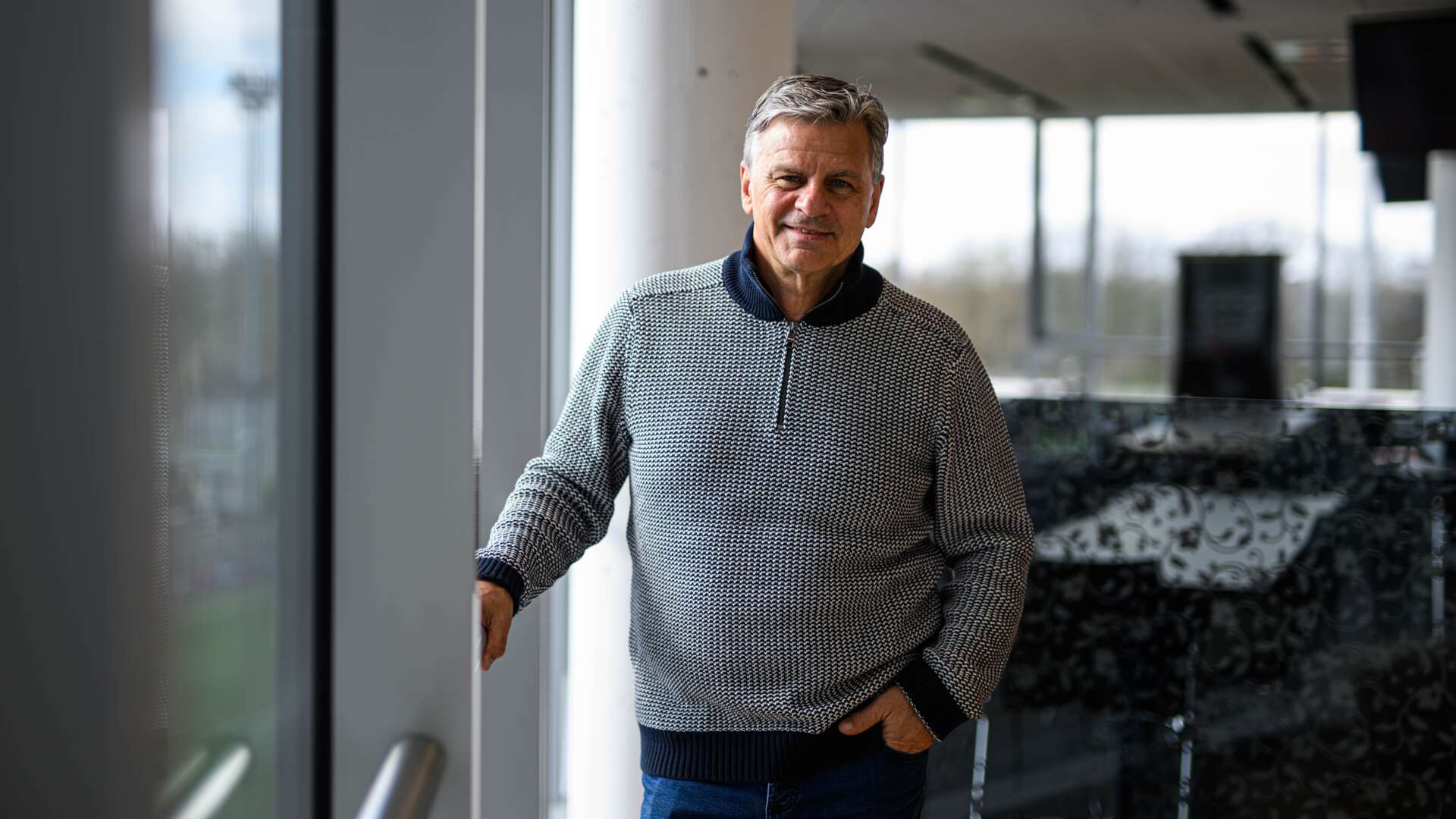‘I wanted the atmosphere and freedom’
35 years of German unity: Falko Götz on his escape, his GDR past and his connection to Bayer 04
We are taking the Day of German Unity and the anniversary as an opportunity to tell a story that befits the subject - that of Falko Götz. The long-serving professional, who currently works in scouting at Bayer 04, spoke to Bayer04.de about his youth in the GDR, his escape during an away game in Belgrade and how he identifies with Bayer 04.
"I had a very happy childhood," says Falko Götz, looking back on the early years of his life in the GDR. Growing up in Berlin in the 1960s, he benefited from the comprehensive childcare provided by the socialist state and at the same time enjoyed his parents' cosmopolitan upbringing. His father owned several bakeries and was therefore considered a default provider in the GDR political system. In Götz's own world, things started moving in one direction very early on: "I always had a great urge for movement."
breakthough at BFC Dynamo
At the tender age of nine, Götz joined BFC Dynamo as a young football player in 1971. Götz, who played in the first team from 1979, is partly responsible for BFC's increasing success. In addition to three Oberliga titles with the Berliners, he also played for the GDR U18 and U21 teams. "Before I was allowed to travel to games in the West, the Stasi naturally checked up on me and my parents."
Despite top performances at BFC, Götz was often passed over for development due to his mother's relatives in the Federal Republic: "I felt disadvantaged. I wanted to do my Abitur, but all I had left was an apprenticeship. I didn't get a flat or a car and always had to wait longer than everyone else." In addition, BFC wanted to be successful in Europe at all costs: "During the first games in the European Cup, we were given stimulants in our drinks without knowing about it." Götz suffered no lasting damage, but joined a class action lawsuit against his former club in 2004.
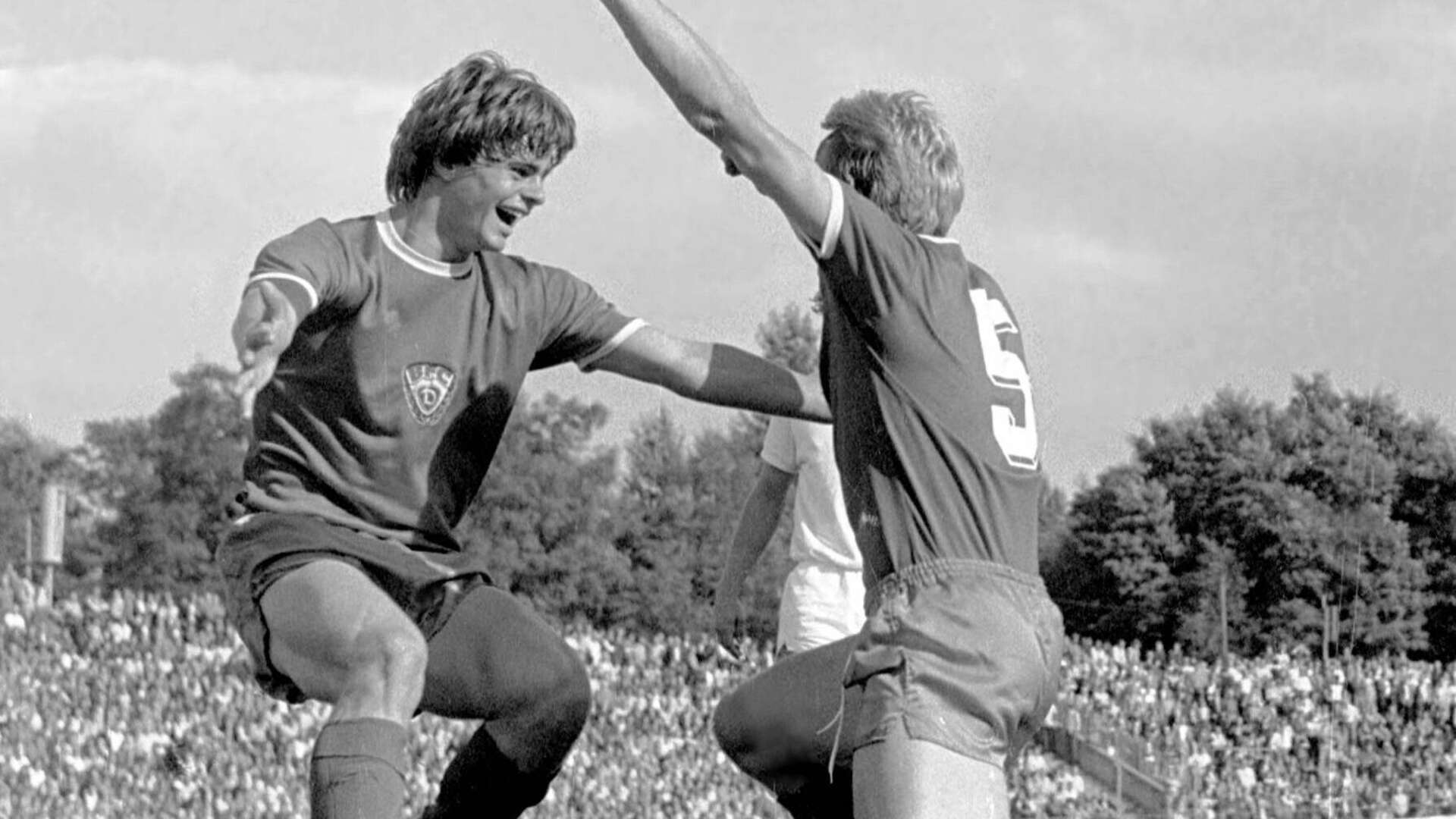
Dream of the Bundesliga: "I wanted to see if I could keep up"
"From an early age, I regularly watched the sports programme," recalls Falko Götz. Even at a young age, the aspiring footballer dreamed of playing in the Bundesliga, and his success in the GDR Oberliga did nothing to change his wish: "The Oberliga was good, but the Bundesliga was a different level. I wanted the atmosphere, the life as a professional player and, of course, the freedom. It was also very important to me that your performance determines which club you play for. I wanted to see if I could keep up in the Bundesliga."
Escape to the West: "I still get goosebumps today"
His situation in the GDR troubled him, but in the end it was the dream of playing in the Bundesliga that made Falko Götz decide to flee. At first he waited: "I didn't want to leave at the age of 18, I wanted to build up a good reputation first, play in the top league and European matches." In 1983, he saw his chance and, together with his team-mate and friend Dirk Schlegel, he took advantage of a European Cup match at Partizan Belgrade to fulfil his desire for more freedom of choice and Bundesliga football. During a stroll through the city, the two shake off their Stasi minders via a side entrance of a record shop and take a taxi to the West German embassy. They then travel by car and night train with forged papers via Zagreb and Ljubljana to Munich - an escape like something out of a Hollywood blockbuster.
"I still get goosebumps today when I think about it. The whole thing lasted 25 hours and I'm glad I was so young and didn't think about everything that could happen back then." Götz's family remained in the East and his mother was interrogated by the Stasi for hours at the headquarters in Berlin-Hohenschönhausen. "My parents knew about it, but they supported me in everything. 'Don't worry, we've got your back,' they said," says Götz with emotion. "I'm incredibly grateful that everything went well," he says today about his escape.
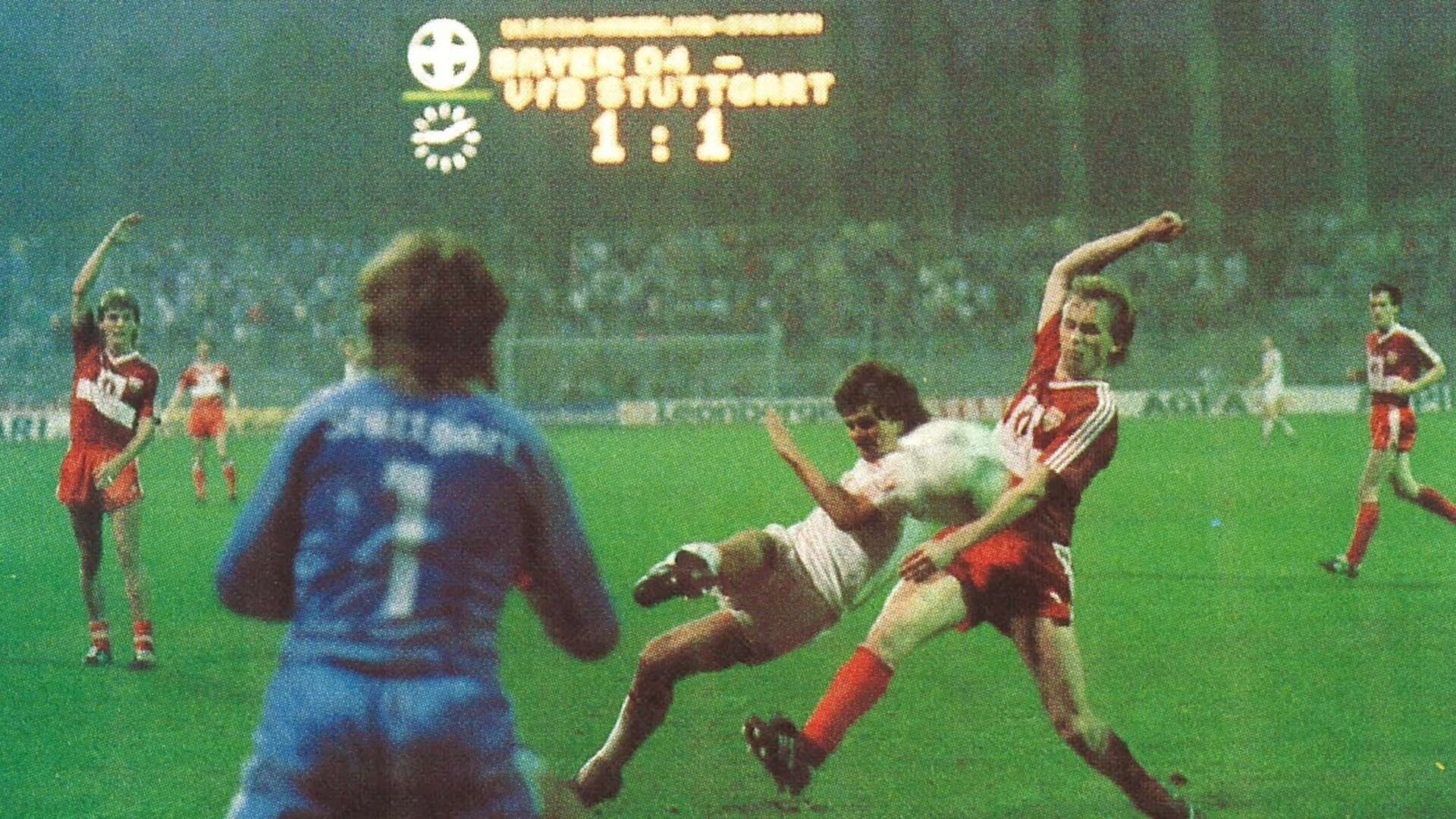

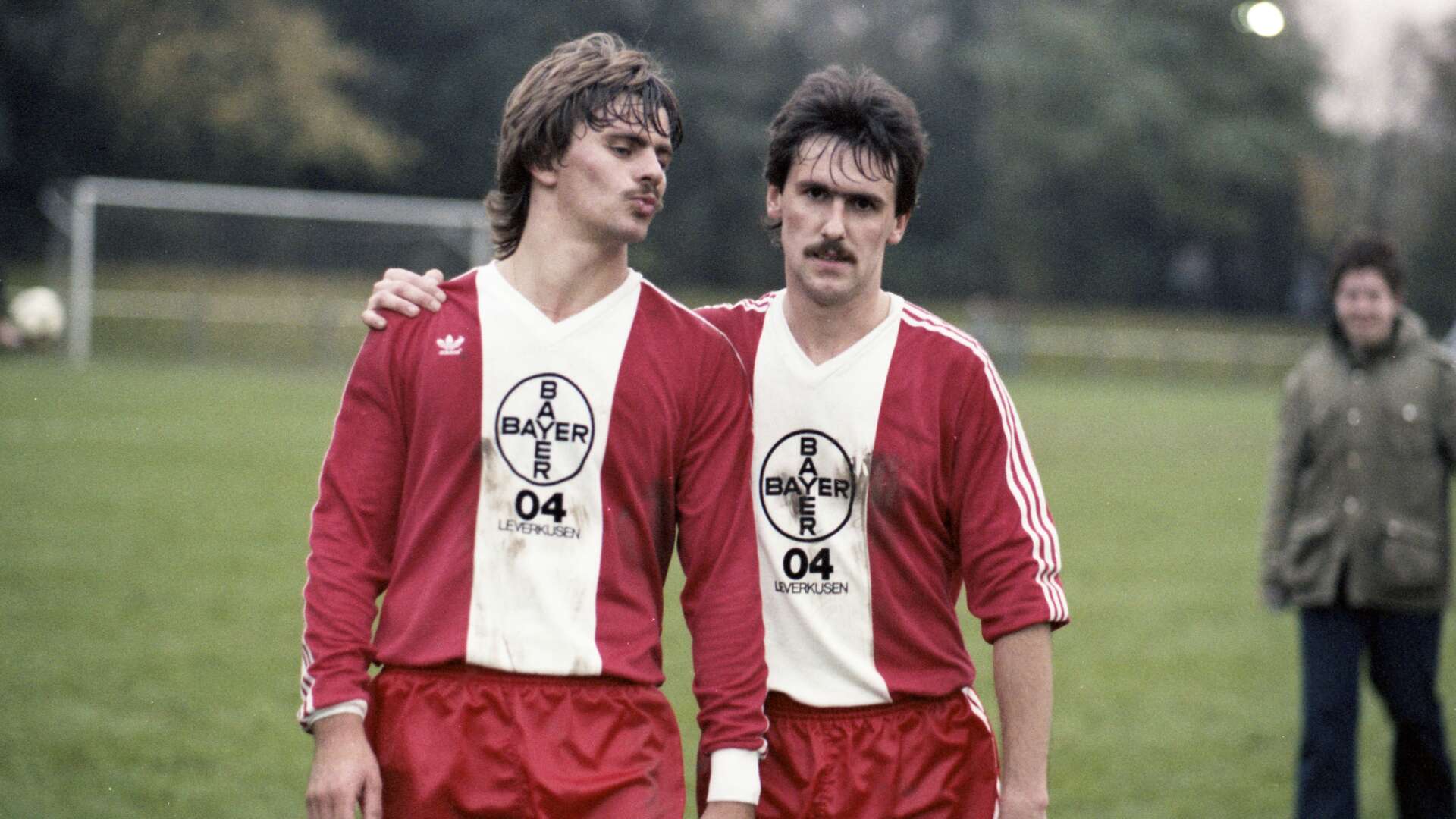
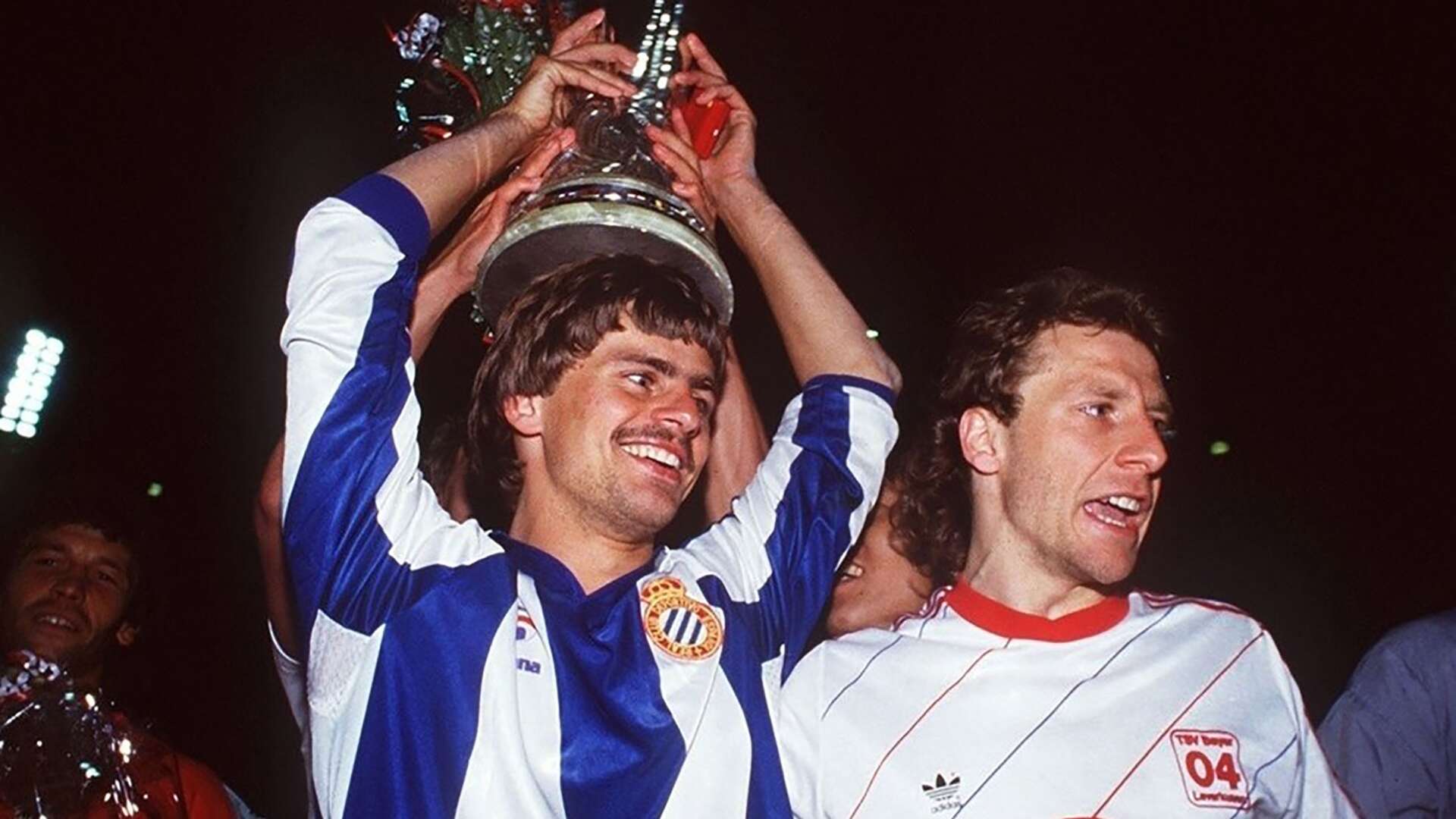
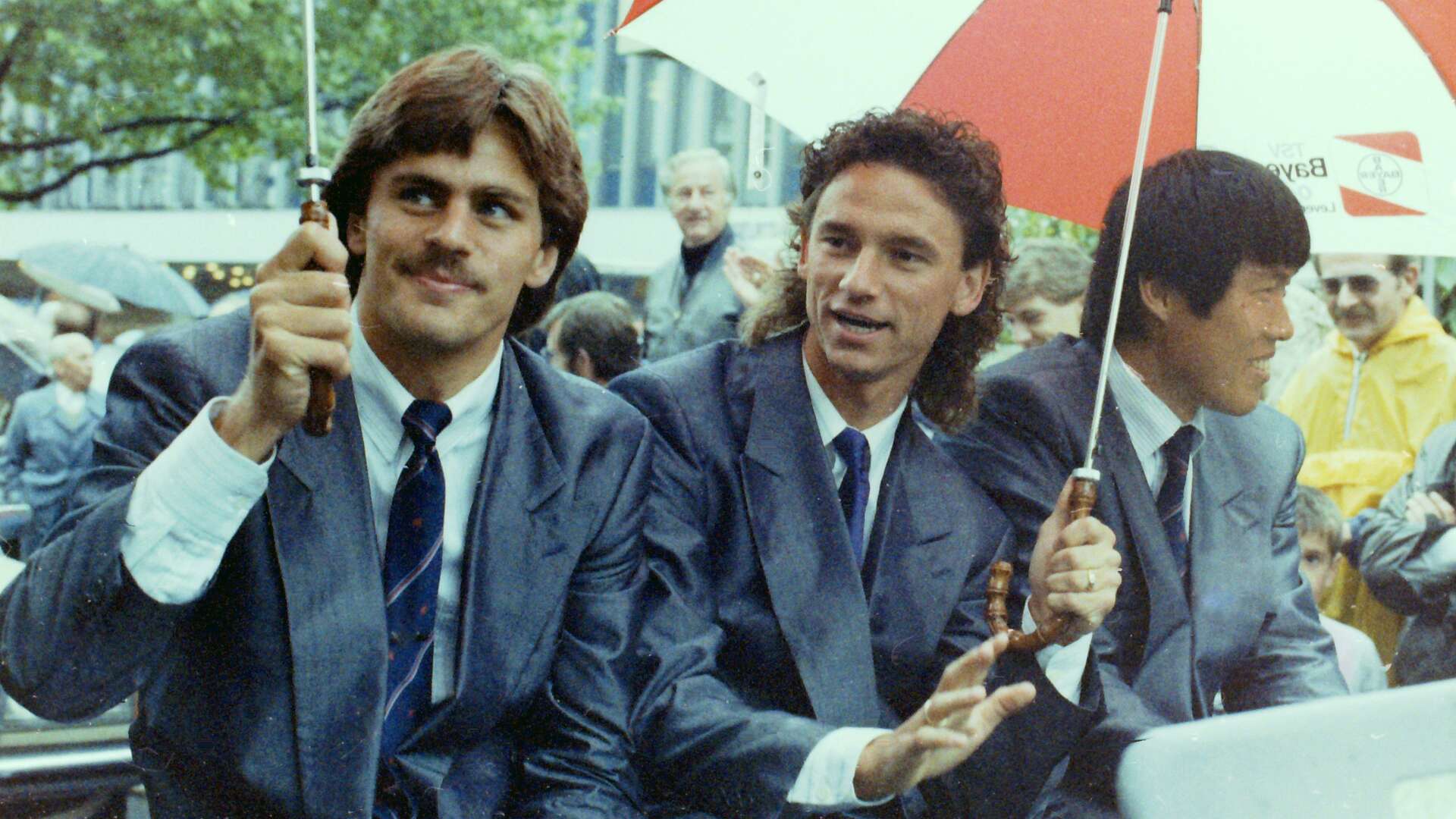
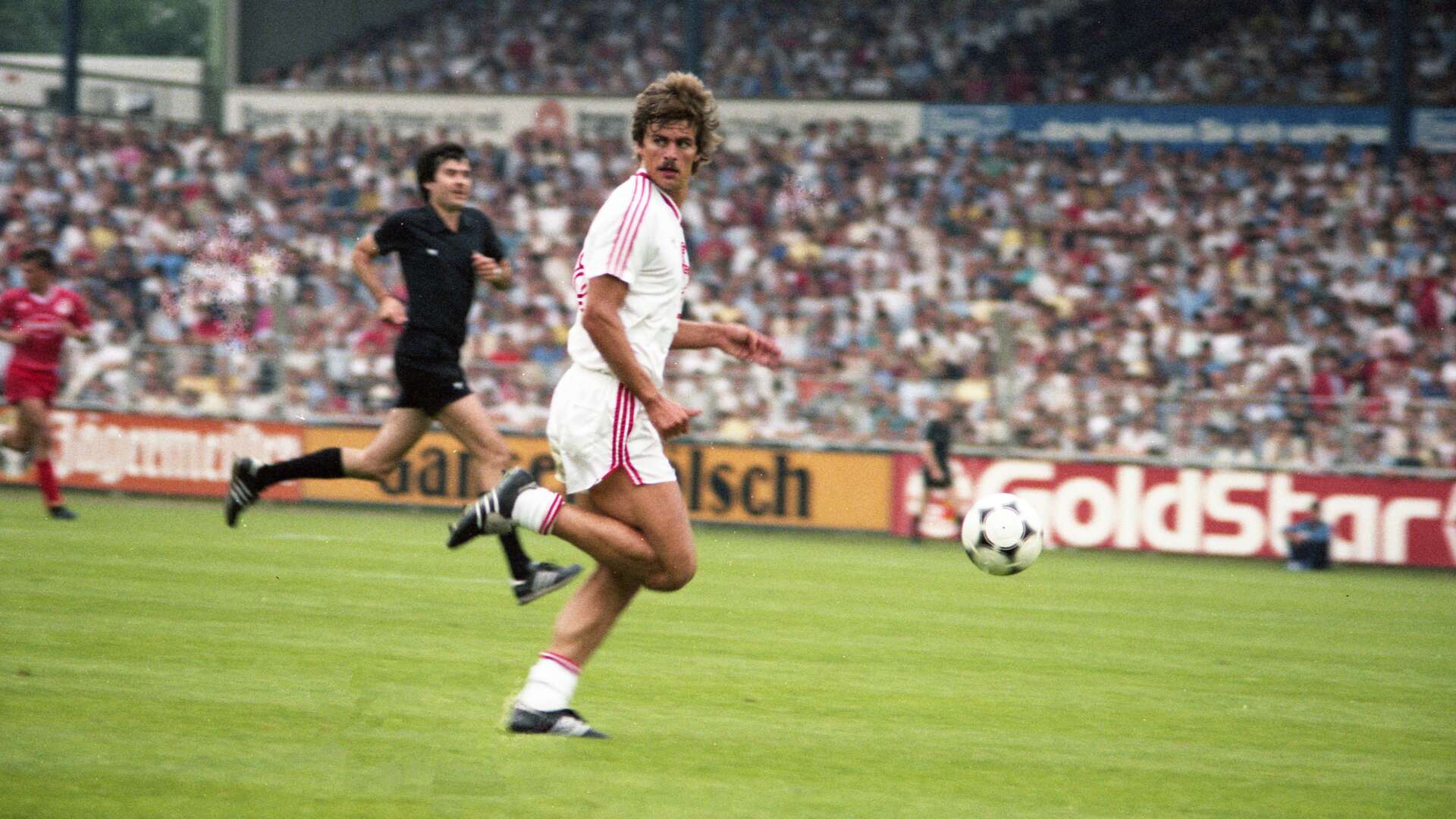
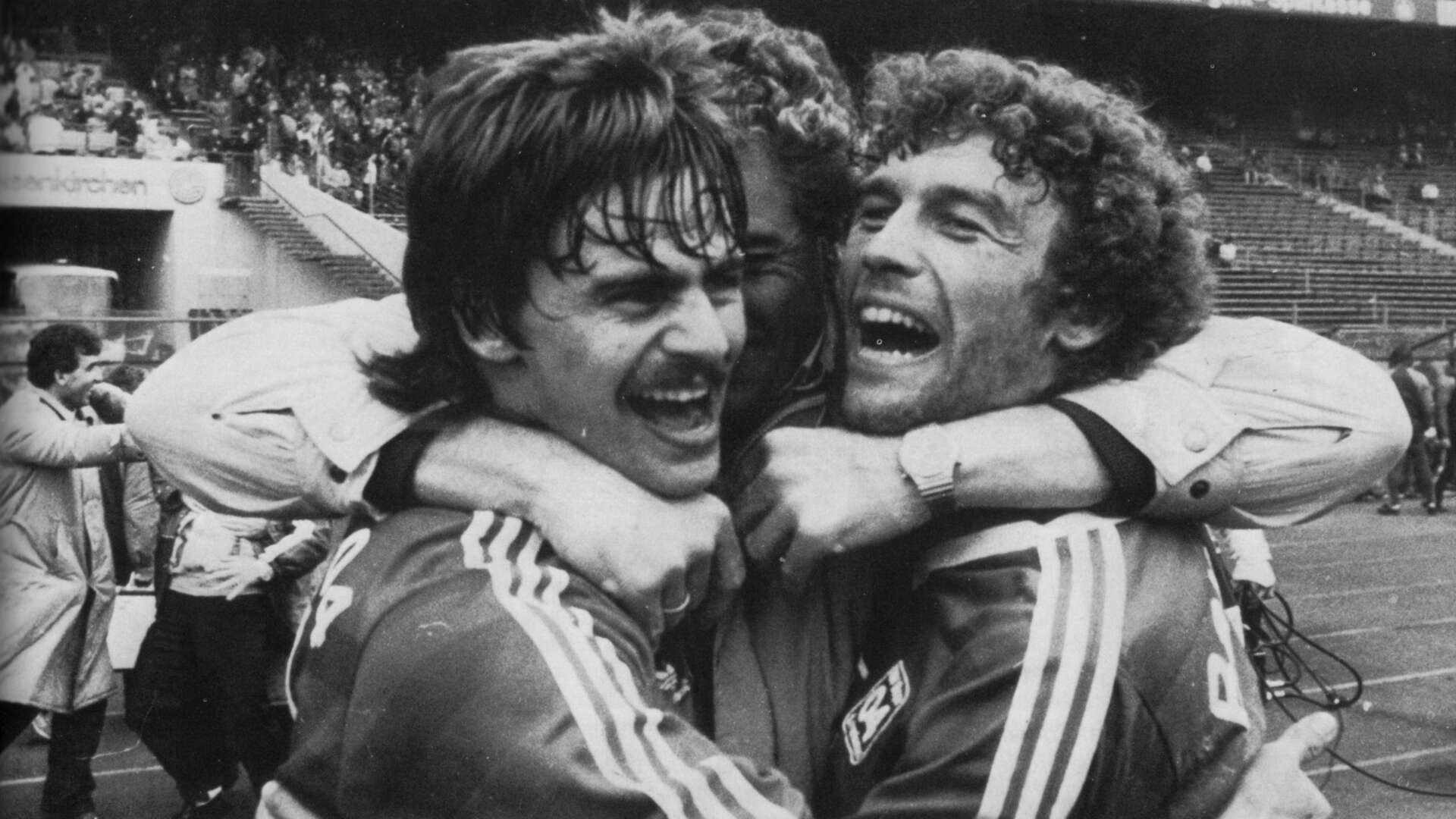
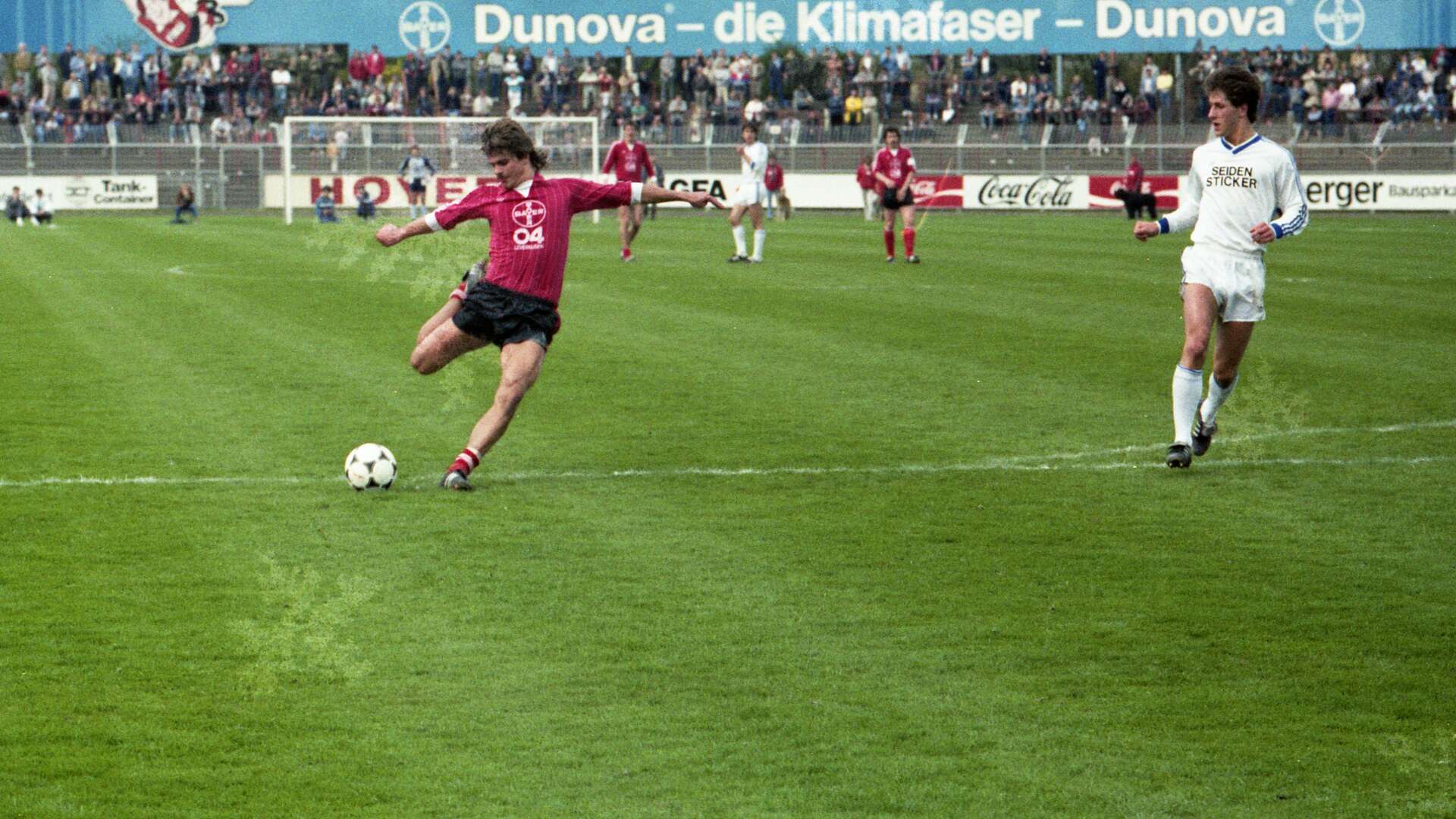
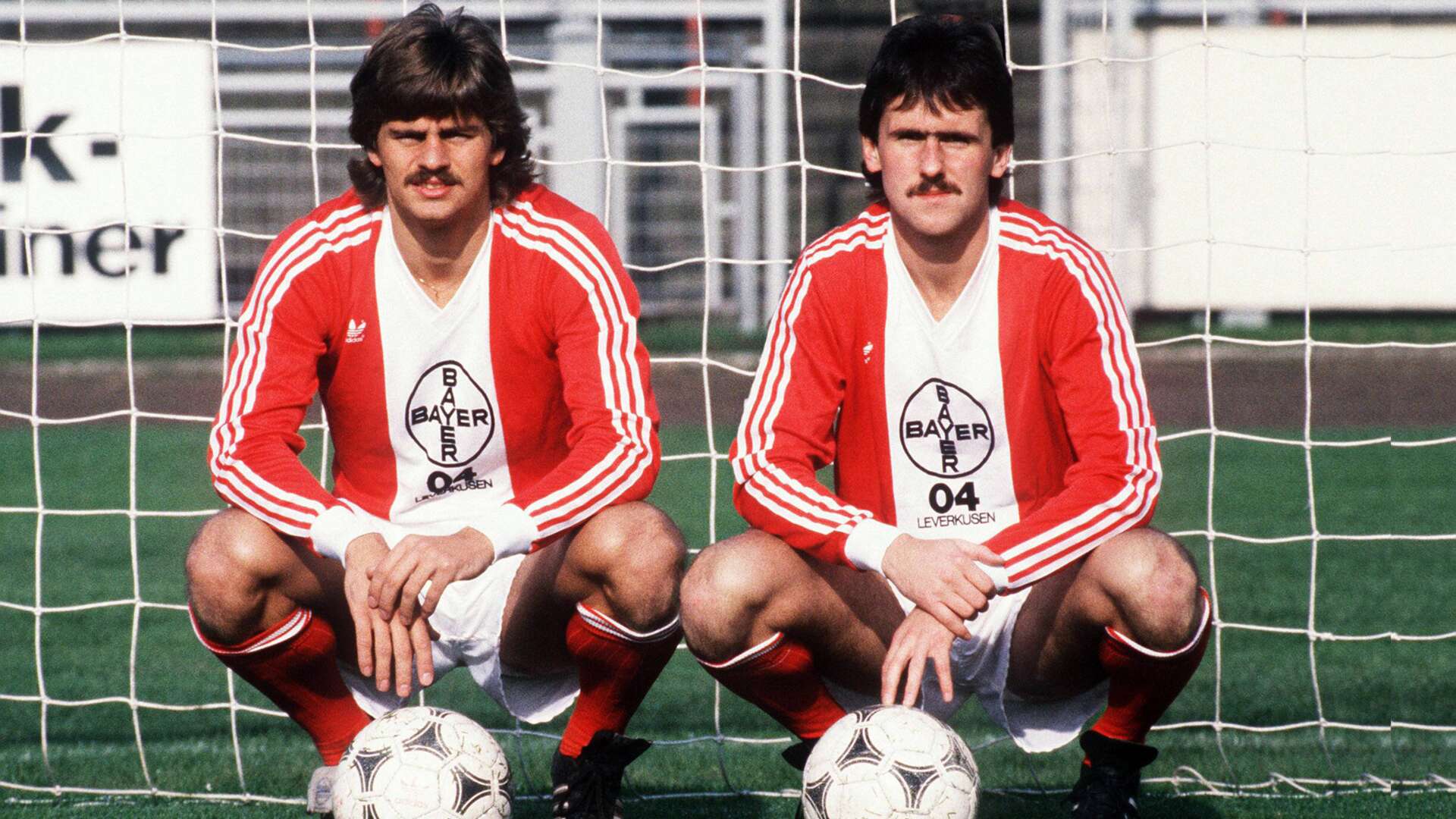

Move to Bayer 04: "Helped us settle in"
Once he arrived in Germany, Götz received offers from eleven Bundesliga clubs and, together with Schlegel, opted for Leverkusen. "Firstly because Bayer 04 wanted me and Dirk Schlegel together, and secondly because the club didn't put any pressure on us and did a lot to help us settle in. In particular, the coach at the time, Dettmar Cramer, was incredibly supportive, visited us regularly and even invited us for a meal when there was nothing in the fridge."(laughs)
At the time, it was common for GDR emigrants to be banned by FIFA for a year. In addition to their training sessions, Götz and Schlegel work in a department store to earn some extra money. When they were both eligible to play again, Cramer didn't hesitate for a second, starting Schlegel in the match against Arminia Bielefeld and Götz in the second half: "That was one of the decisive moments in my career. You've only trained for a year and the coach brings you on in the very first game."
While Götz quickly matures into a regular player at the Werkself, the Stasi does not let him out of its sight. Agents occasionally observed him and his house, and he even moved into a hotel for a few days on one occasion. "We tried to justify our escape in sporting terms. Otherwise we might have caused problems for our relatives in the East," explains Götz. Because he does not speak negatively about his former homeland, the attempts to get him back quickly come to an end. Nevertheless, away games in the Eastern Bloc are impossible for him. In October 1986, he did not travel to the game at Dukla Prague because the Czechoslovakian authorities would not guarantee his safety.
Falko Götz was nevertheless successful at Bayer 04. In 1988, he won the UEFA Cup and even scored the second goal in the legendary comeback from 3-0 down in the first leg against the Spanish club Espanyol. He didn't have to take a penalty: "I was supposed to be the fifth, but I'm very glad that Rudi Vollborn had already won the game for us in goal." In 140 games for Bayer 04, Götz scored a total of 33 times.
Fall of the Wall in 1989: "Every obstacle was cleared away"
"Not everything in the West could replace the East for me," says Falko Götz, summing up the time leading up to the fall of the Wall on 9 November 1989. "Of course, I still had many friends and my family in the GDR. Only my father was able to visit me on his own." However, he was not allowed to cross the Wall until it came down: "When I was in the East, I wanted to go to the West, but when I was in the West, I wanted to go back to the East from time to time, of course. But when the Wall came down, every obstacle between me and all the people I cared about over there was removed."
However, Götz does not regret his risky escape six years earlier: "Developments have proved me right. If I had only left the East in 1989, I would have been 27. My career would have been coming to an end and it would have been very difficult in the Bundesliga."
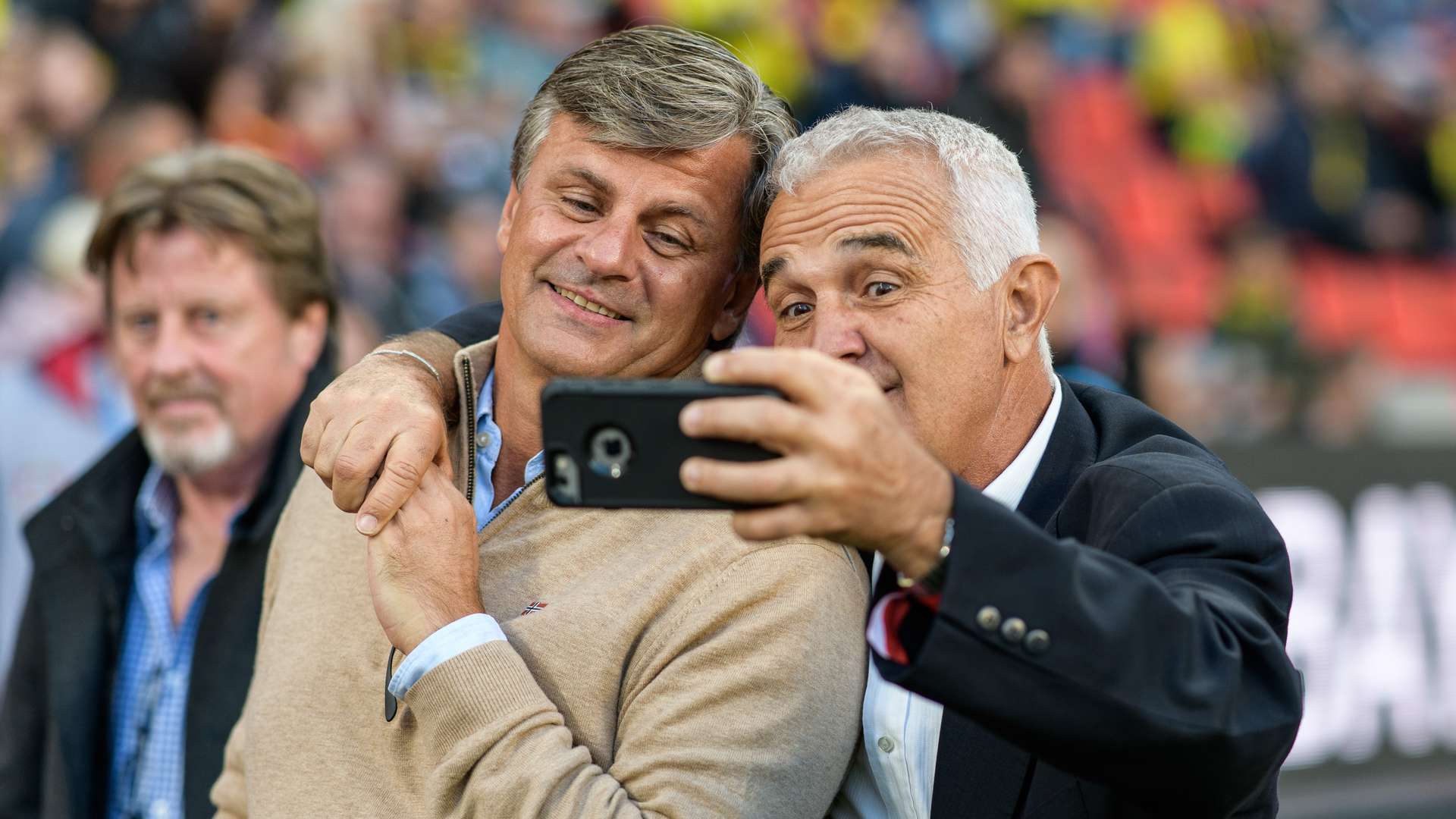

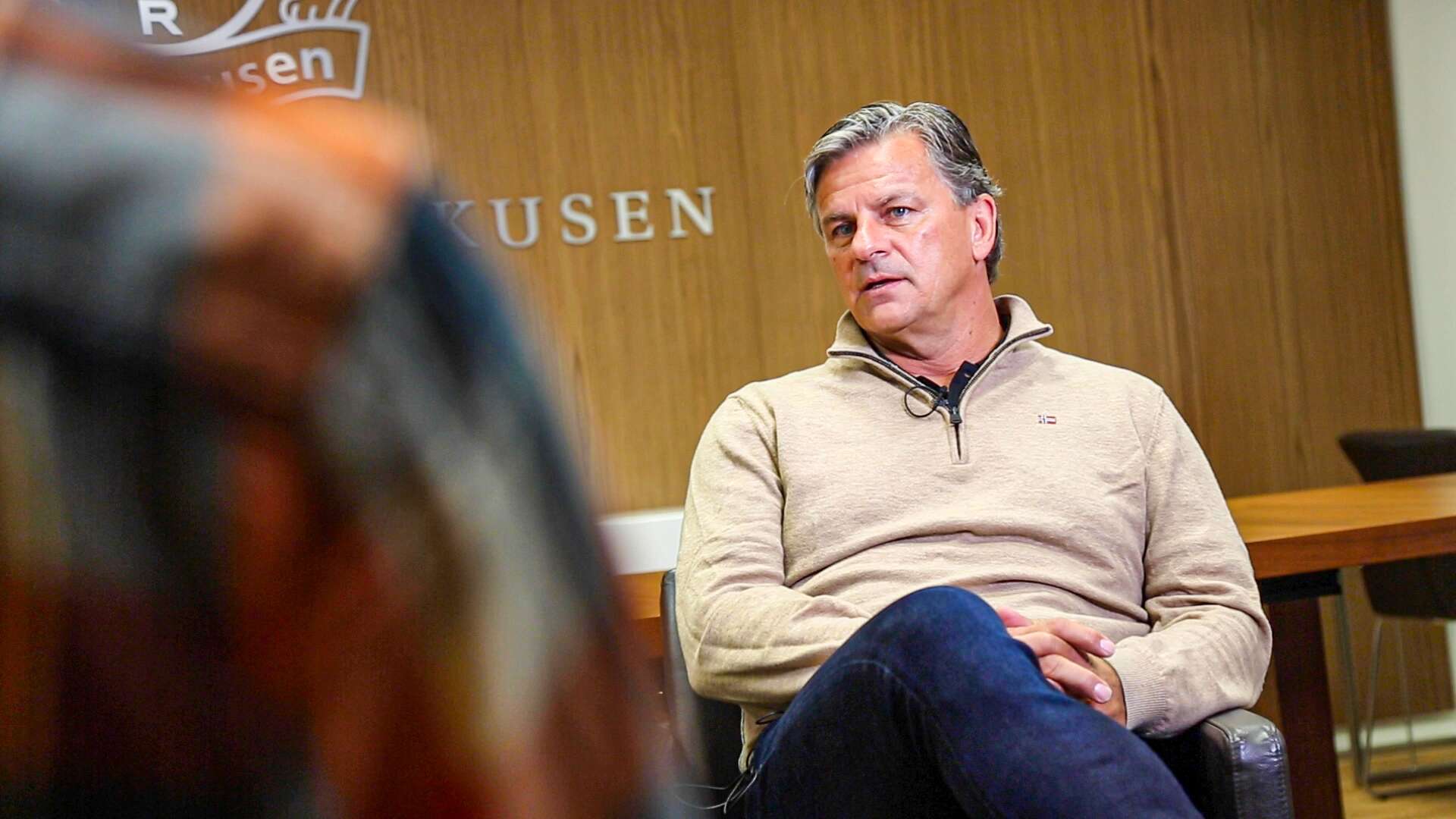
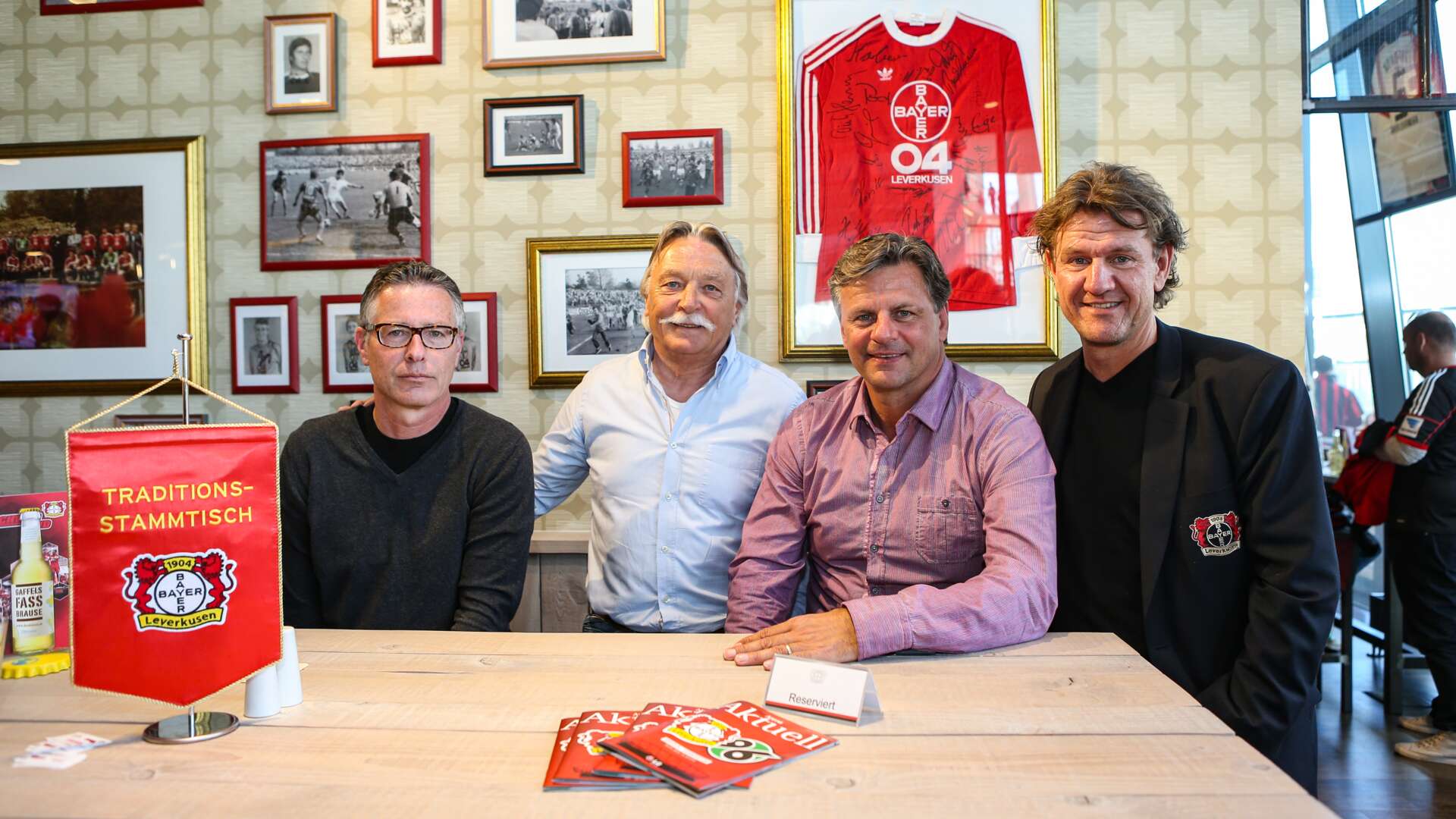
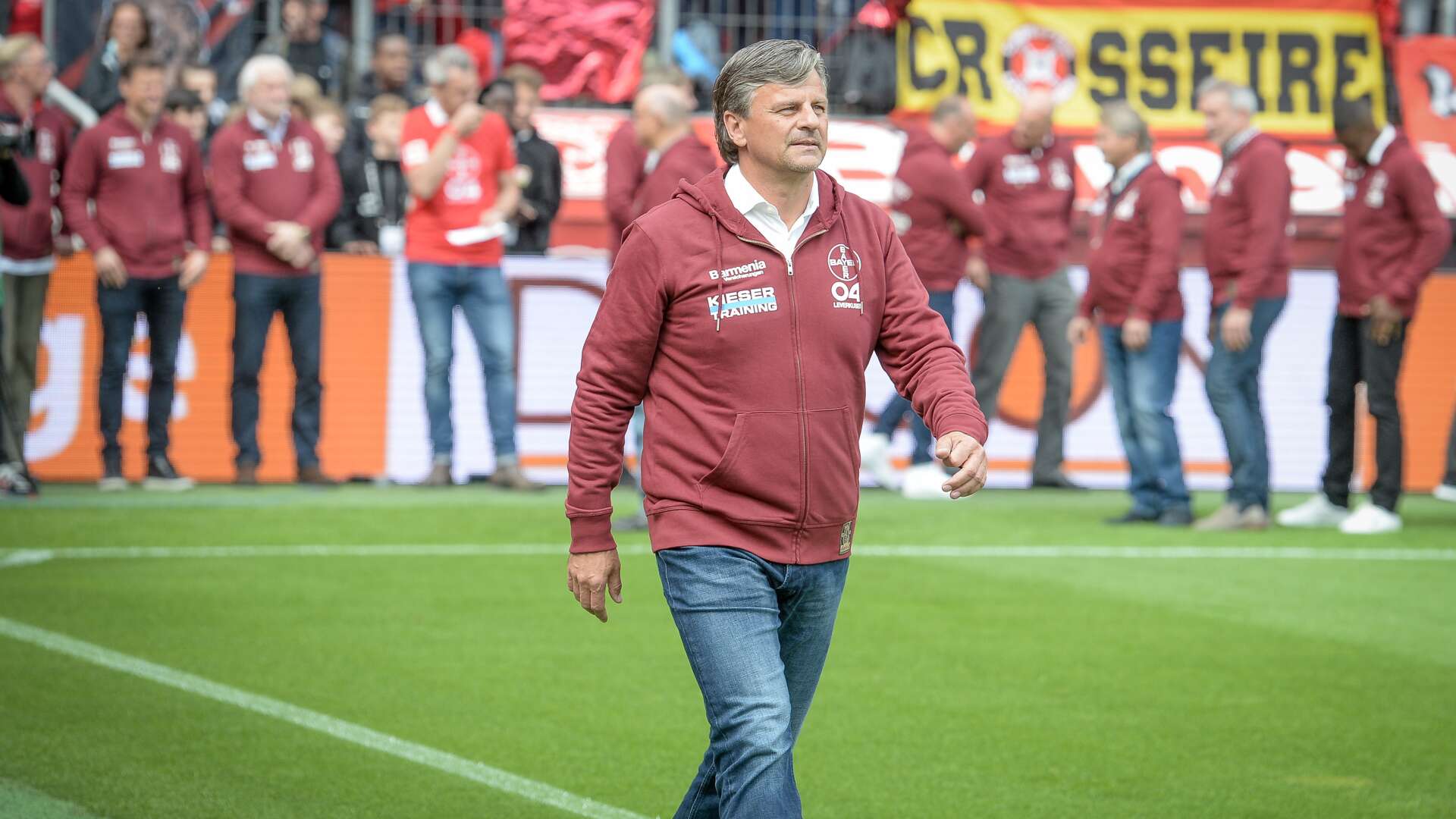
Return to Bayer 04: "Always had a high level of identification"
In 2019, Falko Götz - 31 years after leaving Bayer 04 in 1988 - returned to his favourite club as a scout. "I've always identified strongly with Bayer 04 and kept in touch with the club through the Veterans team. After having dealings with Rudi Völler from time to time, I met Fernando Carro at a veterans tournament. With him and Simon Rolfes the idea was born to use my experience as a scout for this great club and the successful development since 2019 has proved us right. I'm grateful to have been part of it."
Götz is also still in contact with many of his companions from his time as a player at Bayer 04: "I speak to Rudi Vollborn every week, and I'm still in touch with Christian Schreier(former Bayer 04 player, ed) and many others." He has a special bond with the man who brought him to Leverkusen: "Reiner Calmund is a lifelong friend of mine. It's fun to go through the many shared stories with him, even if he does most of the talking."(laughs)
For family reasons, Falko Götz wants to cut back a little on scouting in future, but will also be available to the Werkself in other areas. He is pleased that he can do this in a united Germany: "Unity has played a big part in the positive development of Germany and Europe. I am very happy that I can live in this country."
